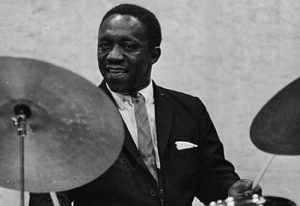Artie Shaw Day
May 23, 1910 – December 30, 2004
Begin the Beguine
Click here if you have a memory of this artist that you’d like to share
Click here to Support Jazz on the Tube
Clarinetist, composer, and bandleader Artie Shaw (born Arthur Jacob Arshawsk) was born on May 23, 1910, in New York City but was raised in New Haven, Connecticut.
He picked up the sax at 13 and, by 16, had switched to the clarinet and was a touring musician.
His bands were immensely popular, and over his career, he sold over 100 million records.
In addition to his commercial success, he was a tireless innovator and experimented with fusing jazz with classical music, strings, and Afro-Cuban music.
After three years in Cleveland as the director and arranger of violinist Austin Wylie’s Orchestra, beginning in 1926, he went on to join “Irving Aaronson’s Commanders.”
Artie Shaw first gained attention with his “Interlude in B-flat” at New York’s Imperial Theater during a swing concert in 1935.
An innovator for his use of unusual big band instrumentation, at times performing accompanied only by a string quartet and rhythm section, he developed the earliest example of what would later be called third stream.
A serious musician, Shaw valued experimentation over popular convention, and in 1938, he became the first white band to employ a black female vocalist full-time when he hired Billie Holiday.
He was a prominent artist of the swing era who entertained the troops during the Second World War, with groups over the course of his career including such talented artists as drummers Buddy Rich, Barney Kessel, Tal Farlow, Jimmy Raney, and Ray Conniff.
This performance featuring Cole Porter’s “Begin the Beguine” is an excerpt from the 1938 film short “Artie Shaw and His Orchestra,” prominently featuring saxophonist Tony Pastor Sr.
Click here if you have a memory of this artist that you’d like to share


